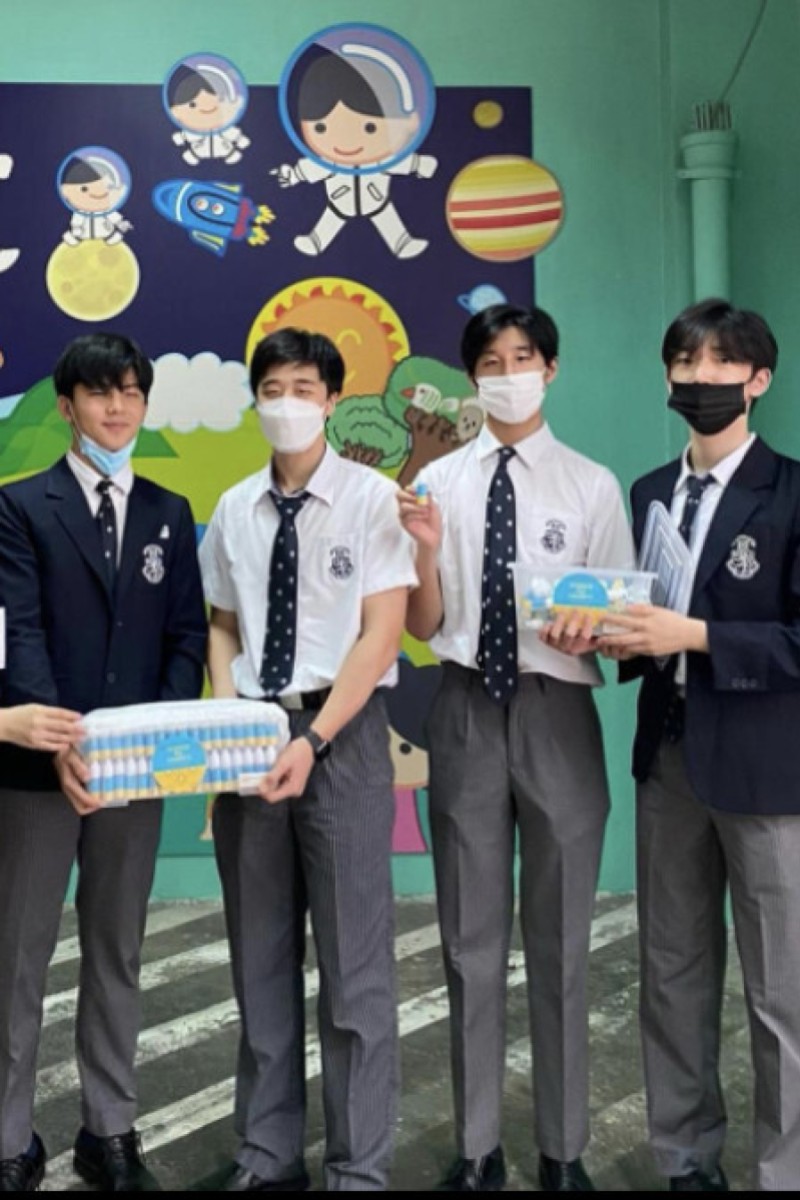
- Science for Charity formed early in the coronavirus pandemic with the aim of helping the underprivileged in the city and abroad
- The group also designed clear masks for people with hearing problems, donating many to the Hong Kong Society for the Deaf

 Science for Charity, formed by four students from Harrow School Hong Kong, made and donated 5,000 bottles of hand sanitiser to people in need. Photo: Science for Charity
Science for Charity, formed by four students from Harrow School Hong Kong, made and donated 5,000 bottles of hand sanitiser to people in need. Photo: Science for CharityWhen schools were suspended early on in the pandemic, four Hong Kong teenagers decided to take a break from Netflix and see what they could do to help. They decided the best way would be to make 5,000 hand sanitisers and donate them to people in need around the world.
Four students at Harrow International School Hong Kong, aged 17 to 18, started a group called Science for Charity in March 2020 with the aim of helping the underprivileged both in the city and abroad overcome the difficulties they were facing because of the pandemic.
How this year’s SOTY Grand Prize winner gave back to Hong Kong
Jay Ji, Dong-wook Kim, Jonathan Lee and Jay Park said they bought the materials they needed online and in pharmacies and taught themselves how to make hand sanitiser.
“It was easier than we expected, as we could find a lot of information online and on YouTube,” said Jay Ji.
Once they had the necessary materials – ethyl alcohol, glycerine and lavender aroma oil – they got to work, making sanitiser at home during their free time.
“When we decided to launch the project, school was closed due to the outbreak, and classes had moved online,” said Dong-wook.
“This meant we didn’t have any extracurricular classes and didn’t need to waste any time commuting, so we could spend about one or two hours every day working on our project,” he said. “Of course, our families helped us too, and we got together once a week to work as a team.”
HK teen starts non-profit for the city’s asylum seekers
Within one year, the four made 5,000 bottles of sanitiser. 3,650 of them were sold to other students at their school, raising a total of HK$15,650. They used this money to buy 4,000 face masks and donated them to George Washington University Hospital in the US and Epsom Hospital in the UK, which were both in need of face coverings. Another HK$4,600 went to the Nyanza District Hospital in Rwanda so the staff there could use the money to buy medical supplies.
They also donated materials to Hong Kong-based non-governmental organisations, like the Crossroads Foundation, which received more than 1,300 bottles of hand sanitiser from the group.
The group now has about 30 members, all Harrow students, and their most recent project was to design 500 see-through masks, which they donated to the Hong Kong Society for the Deaf. They raised HK$16,200 through selling masks to their classmates, donating a mask for each one bought.
“We realised that the pandemic had a severe impact on more vulnerable populations, like the hearing-impaired,” said student Kim. “We wanted to support them by designing and donating these masks, which allow them to read people’s lips. This is essential for daily communication.”
